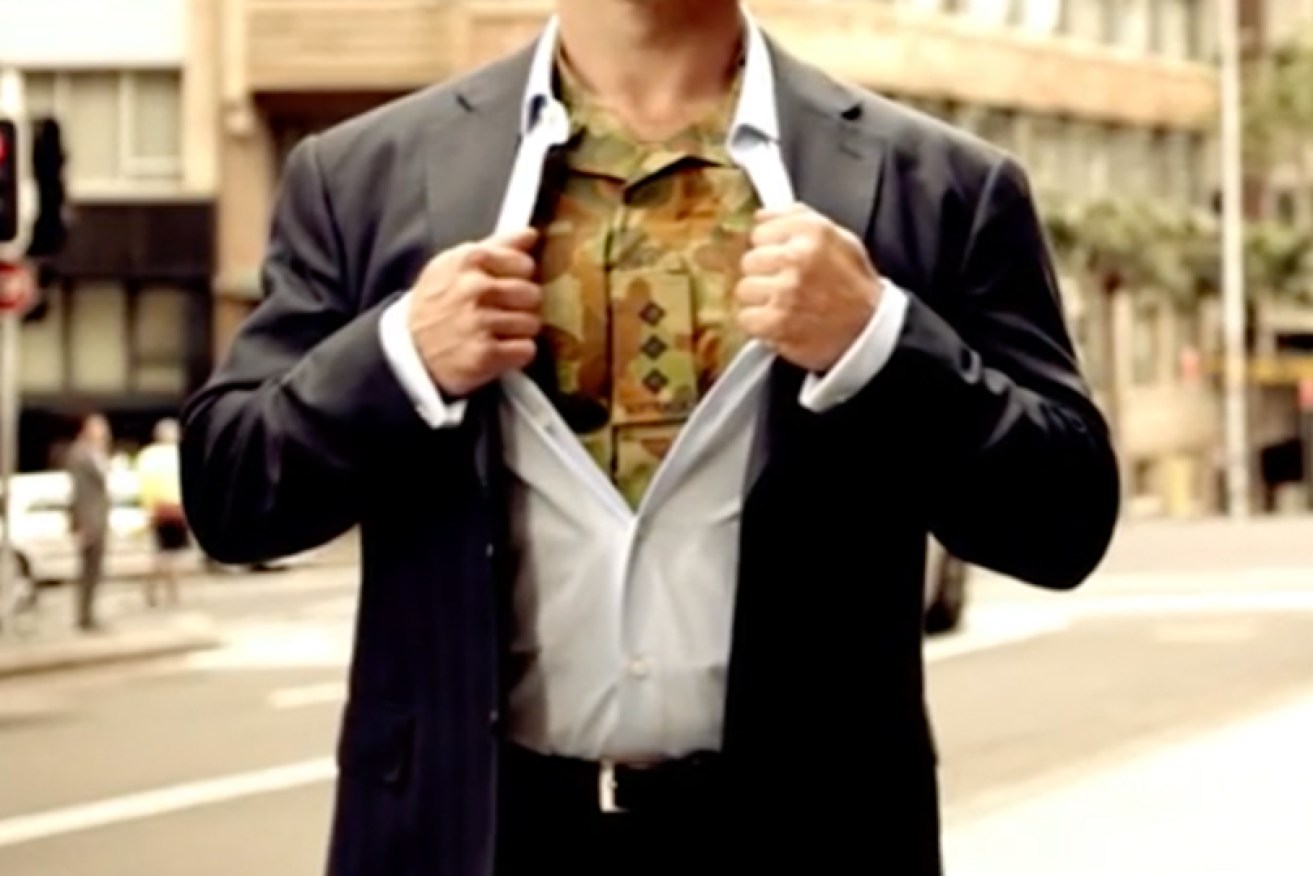Diggers built a proud banking culture. The suits ruined it


Returned service people of two world wars saw a wave of mutuals established. Then the executive class took over. Photo: ADF/YouTube
What happened to the fair go for clients and customers? What happened to trust in our institutions? It’s all about culture, so we’re told.
“Culture” is a word weighing heavily on the land this Anzac week, “culture” as in the soul, nature and behaviour of people and organisations.
At the highest level, Richard Flanagan’s soaring National Press Club speech continues to ripple outwards as people either read or watch it. In part, it is his view of what our Anzac remembrance should be rather than what it has become.
At the other end of the scale, the banking royal commission rolls on exposing systemic, structural failure within fabulously wealthy companies that encouraged or allowed ripping off customers.
The gob-smackingly well-paid people running these companies often have been big on throwing the “culture” word around.
As senior counsel assisting Rowena Orr skins rabbit after rabbit on the stand, it’s been a culture they’d prefer to hide.
It might seem a big stretch to link crooked financial advice and Anzac, but there’s no better day for considering what we’ve become and should be.
The marking of Anzac Day continues to grow, the commemorations attracting bigger crowds. Some of that might be attributed to confected nationalism and crass marketing, but I like to think there’s also an ongoing recognition of debt for sacrifice, whether or not that sacrifice was for good or dubious causes at the hands of appalling leadership.
There’s a recognition of something greater than us in the men and women prepared to give everything in service of their country, as well as reminding us of the terrible folly of war.
For me, the final focus on debt lifted Steven Spielberg’s Saving Private Ryan above the average war movie. The old Ryan at Captain Miller’s grave asks his wife: “Tell me I’m a good man.” He’s hoping he fulfilled Miller’s dying request to “earn this”, to deserve what his life had cost others.
That’s the challenge of Anzac Day if we can look through the flag-waving and chest-thumping, not to trumpet how successful Australian soldiers were a century ago with the $100 million monument in France that irks Mr Flanagan, but to question what sort of society we should be compelled to build to “earn” the sacrifice of dead and damaged Diggers and their families.
The returned services people of two world wars saw a wave of mutuals established and thrive. Something of the services’ ethic had to permeate business as Australia came off a war footing.
For example, talk to old-timers from what was the St George Building Society, those who remember the generation that came through the war. St George was established as a terminating building society in the dark days of 1937 but took off on the strong demand for post-war housing.
“Just remember, mate, it’s not your money,” was a regular admonishment that Jim Wills, the ex-Digger managing director, gave to managers. That spirit lived on for another generation in Jim Sweeney, a giant of the building society movement.
St George was effectively forced by regulation to de-mutualise and become a bank. The usual story of de-mutualisation played out – executive salaries soared, the executive class steadily lost contact with the institution’s roots and core business and finished up part of Westpac.
The mutuals were part of their society, their neighbourhood, entwined with and knowledgeable of their customers/owners.
But it wasn’t just the mutuals. Our banks and other major companies were not separated from their customers by enormous paywalls. In a perhaps more cohesive society, the bank manager was part of your town, your suburb. The top executives were certainly comfortable but not fabulously rich, as has become the fashion.
One of the handful of best CEOs I’ve ever met, Paul Simons of Woolworths fame, had a cap on executive remuneration based on a multiple of Woolworths’ lowest-paid employee.
Back in the day, off camera, one old-school banker told me he felt unease at the proliferation of very expensive cars in the head office car park. Another, Westpac’s Bob White, said he kept mowing his suburban lawn himself because it helped keep him grounded. But “old school” is out of fashion.
A common feature of paying some people vastly more than most others seems to be the damaging of culture, from cricketers to finance houses.
At an indeterminate point of remuneration, there’s a temptation for some to see the money deserved as theirs and the customer merely a means to that end. It’s not a question of the shareholder or customer coming first, but the individual’s pay packet. That quickly permeates an organisation.
The result is a collective distrust and dislike of our vitally important financial institutions. Yet the silly thing is, they really are ours.
By and large, it’s everyone with a superannuation fund who owns our big four banks. We’re the people collectively worth $2.6 trillion who have allowed companies to lose their connection with us, who have set up structures that demand greater profits regardless of social cost. The desire to simply “punish” the banks as something separate from us is a little silly.
To quote Mr Flanagan only a little out of context: “Australia is not a fixed entity, a collection of outdated bigotries and reactionary credos, but rather the invitation to dream, and this country – our country – belongs to its dreamers.”
The clock cannot be turned back to simpler, slower days, but we can reconsider what business culture we deserve, what sort of fair-go society we should aspire to.








